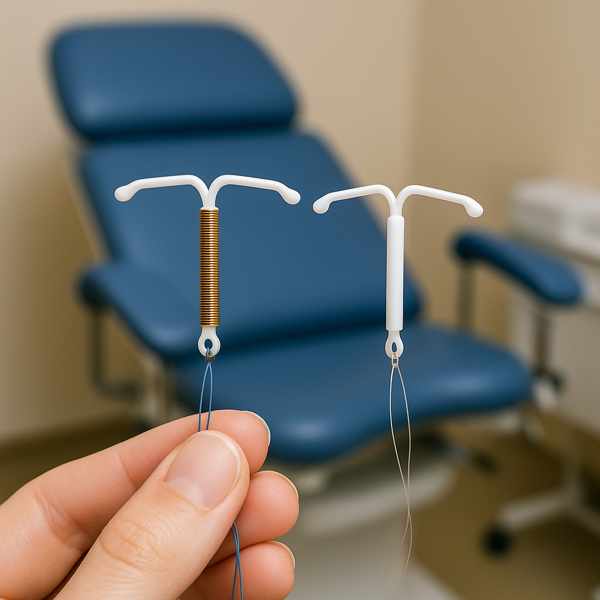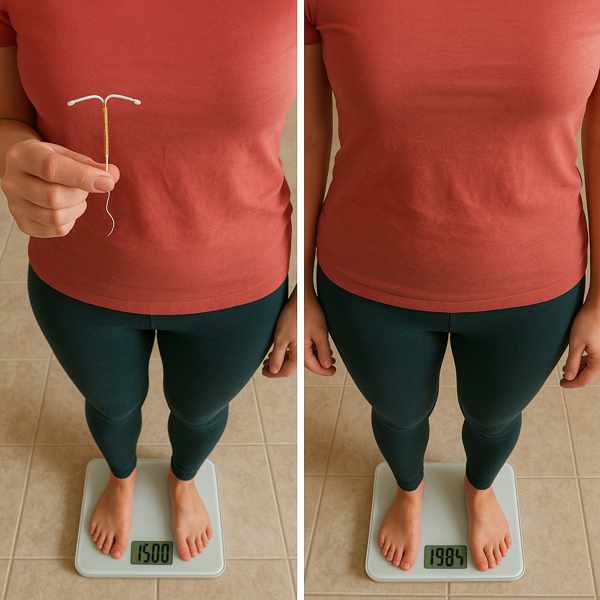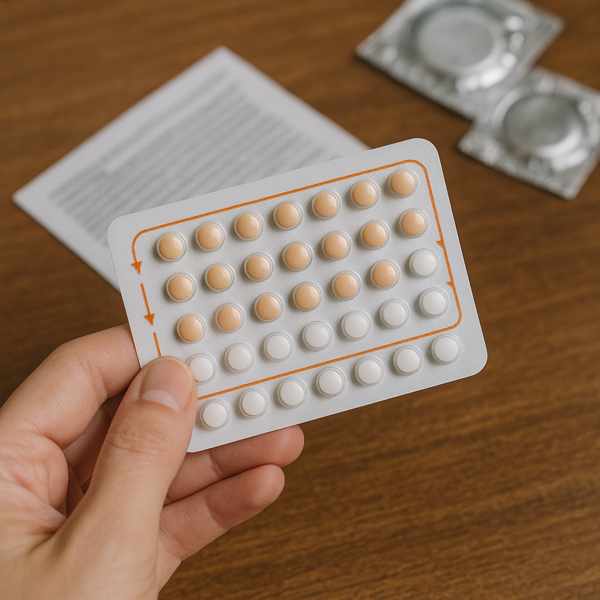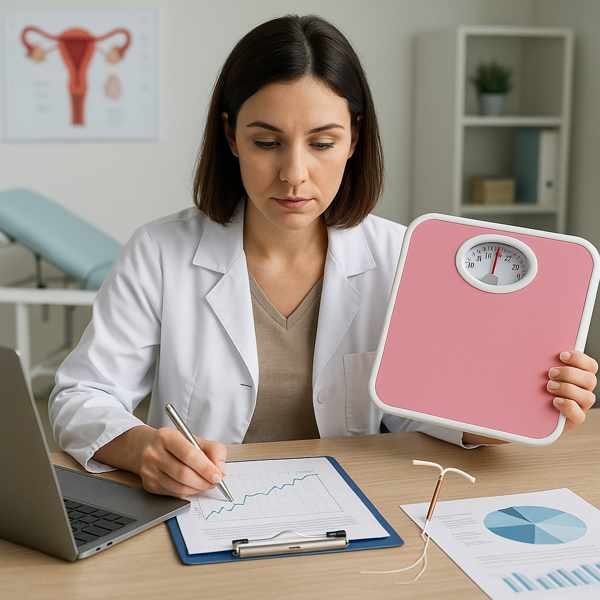Transformative Weight Loss After IUD Removal: Real Stories and Tips
Weight loss after IUD removal is a topic that interests many people. An IUD, or intrauterine device, is a small device placed in the uterus to prevent pregnancy. There are two main types: hormonal IUDs like Mirena and non-hormonal ones like the copper IUD. Some women report weight changes after getting an IUD removed.
This article will explore why weight changes might happen after removing an IUD. We will discuss different kinds of IUDs and their effects on weight. We’ll also look at how hormonal birth control affects the body. Finally, we will provide tips for managing weight after IUD removal. This article aims to offer clear information to help you understand this complex topic.
Understanding Intrauterine Devices (IUDs)
![]()
An intrauterine device, or IUD, is a popular form of birth control. It is a small, T-shaped device inserted into the uterus by a healthcare professional. IUDs are highly effective, with less than 1% failure rate per year. There are two main types of IUDs: hormonal and non-hormonal.
- Hormonal IUDs: These include brands like Mirena, Kyleena, and others. They release hormones to prevent pregnancy.
- Copper IUDs: These do not have hormones. Instead, they use copper to stop sperm from fertilizing an egg.
Both types of IUDs are long-lasting. Hormonal IUDs can work for 3-7 years, while copper IUDs can last up to 10 years. Many women choose IUDs because they are convenient. Once inserted, you don’t have to think about them daily like pills.
Despite their benefits, some women experience side effects. These can include changes in weight, mood, and menstrual cycles. Understanding these side effects is important for anyone considering an IUD.

Intrauterine Devices (IUDs)
Weight Changes After IUD Removal
![]()
Many women wonder if they will lose weight after IUD removal. The answer isn’t simple. People report different experiences. Some lose weight, while others gain weight or notice no change at all.
Several factors can influence weight changes after removing an IUD. Your body might react differently depending on the type of IUD you had. Hormonal IUDs like Mirena release hormones similar to those in birth control pills. When these hormones leave your system, your body might change.
For example, some women find that they feel hungrier when they have a hormonal IUD. Removing it may change hunger levels, leading to weight loss. Others might experience hormone-related water retention, which could decrease after removal.
On the other hand, removing a copper IUD usually doesn’t affect hormones. Therefore, weight changes might not be as noticeable. However, everyone’s body is different. Factors like diet, exercise, and mental health also play a big role in weight management.
If you’re concerned about weight changes, talk to a healthcare professional. They can offer personalized advice based on your health history and lifestyle.

The Role of Hormonal Birth Control
![]()
Hormonal birth control methods include pills, patches, and hormonal IUDs like Mirena. These methods release hormones such as estrogen and progestin into the body. These hormones prevent pregnancy by stopping ovulation and thickening cervical mucus.
While effective for birth control, these hormones can cause side effects. Some people experience mood swings, acne, or weight changes. Weight gain is often reported with hormonal birth control. However, research shows mixed results.
Some studies suggest that hormonal birth control doesn’t significantly affect weight. Others report slight weight gain, possibly due to increased appetite or water retention. When you stop using hormonal birth control, your hormone levels return to normal.
This change can lead to weight fluctuations. For instance, if you gained weight due to water retention, you might lose it after stopping the birth control. But remember, weight changes are unique to each individual.
Discussing concerns with a doctor can help manage expectations. They can recommend suitable alternatives if hormonal birth control causes unwanted side effects.

Health Considerations After IUD Removal
![]()
What Can Happen After the IUD Is Removed? What Should You Expect After Iud Removal?
Removing an IUD is usually a simple procedure done by a healthcare professional. However, it’s essential to consider potential health effects. Some women experience mild cramping or spotting after removal. These symptoms typically resolve quickly.
In rare cases, complications like pelvic inflammatory disease (PID) can occur. PID is an infection of the reproductive organs. Symptoms include pain, fever, and unusual discharge. If you experience these symptoms, seek medical advice promptly.
Another consideration is mental health. Hormonal changes can affect mood and emotional well-being. Some women report feeling more balanced after IUD removal, while others notice mood swings.
It’s also crucial to monitor general health indicators, like blood pressure and vitamin levels. A balanced diet and regular exercise can support overall health. Eating nutritious foods helps maintain energy levels and supports mental health.
If you have concerns about health changes post-IUD removal, consult a healthcare provider. They can offer tailored advice and check for any underlying issues.
Hair Loss and Iud Removal
![]()
Hair loss can be a distressing experience, and for some individuals, it may coincide with the removal of an intrauterine device (IUD). While hair loss is not commonly listed as a direct side effect of IUD removal, hormonal fluctuations that occur as the body readjusts can potentially contribute to changes in hair health. IUDs, particularly those that release hormones like the levonorgestrel-releasing IUD, can alter the body’s natural hormone balance.
Upon removal, the sudden shift in hormone levels might temporarily disrupt the hair growth cycle, potentially leading to increased shedding or thinning. It’s important for individuals experiencing significant hair loss after IUD removal to consult with a healthcare professional to explore the underlying causes and determine appropriate treatment options. Other factors, such as stress, nutritional deficiencies, or underlying medical conditions, could also play a role in hair loss and should be considered in addressing the issue.

Managing Weight After IUD Removal
![]()
Managing weight after IUD removal involves a combination of healthy habits. Here are some tips to help:
- Balanced Diet: Focus on whole grains, lean proteins, fruits, and vegetables. Limit processed foods and sugary drinks.
- Regular Exercise: Aim for at least 30 minutes of physical activity most days. Activities like walking, cycling, or swimming can be enjoyable and effective.
- Stay Hydrated: Drinking enough water supports metabolism and helps control hunger.
- Monitor Portion Sizes: Eating appropriate portions can prevent overeating.
- Get Enough Sleep: Lack of sleep can affect hormone levels and appetite. Aim for 7-9 hours per night.
Consider keeping a food diary to track eating habits. This can help identify patterns and areas for improvement. Additionally, managing stress is vital for maintaining a healthy weight. Techniques like meditation, yoga, or deep breathing exercises can be beneficial.
If you struggle with weight management, seek guidance from a nutritionist or healthcare professional. They can offer personalized strategies to meet your goals.

Case Studies and Statistics
![]()
Research on weight changes after IUD removal is limited. However, some case studies and statistics provide insights.
A study published in the journal “Contraception” found that women using hormonal IUDs like Mirena reported slight weight gain. However, the increase was minimal, averaging around 1-2 pounds over several years.
Another study from the “American Journal of Obstetrics and Gynecology” showed that women who stopped using hormonal contraceptives lost around 5% of their body weight within a year. However, results varied widely among participants.
Case studies highlight diverse experiences. One woman reported losing 15 pounds within three months of Mirena removal. She attributed this to reduced bloating and improved energy levels.
Conversely, another case involved a woman gaining weight after removing a copper IUD. She experienced increased appetite and stress, contributing to weight gain.
These examples show that individual experiences vary. Factors like lifestyle, genetics, and overall health play significant roles in weight changes.

Conclusion: Weight Loss After IUD Removal
![]()
Weight loss after IUD removal is a complex topic with no one-size-fits-all answer. While some women experience weight changes, others do not. The type of IUD, hormonal influences, and personal health all contribute to these differences.
Understanding how your body reacts to birth control can guide expectations and decisions. Consulting with healthcare professionals ensures safe and informed choices.
Adopting healthy habits like balanced eating, regular exercise, and stress management supports weight goals. Remember, every individual’s journey is unique. What works for one person may not work for another.
Ultimately, focusing on overall well-being rather than just weight can lead to healthier outcomes. By listening to your body and seeking support when needed, you can navigate changes confidently.
When it comes to sexual health and contraceptive methods, the Mirena IUD is a popular choice for many. However, questions and discussions often arise around weight changes following the removal of the IUD. Many individuals report experiencing weight loss after IUD removal, specifically with the Mirena. This topic is frequently explored on platforms like Reddit, where users share their personal experiences with weight loss after Mirena removal, as well as after removing other types like the Kyleena or copper IUD.
For some, weight loss after Mirena removal feels rapid and significant, while others experience more gradual changes. There are also cases where individuals find themselves gaining weight after IUD removal, which can be confusing and frustrating. This has led to a lively exchange of advice and support in forums dedicated to weight loss after Mirena removal. Many users seek guidance on how to avoid weight gain after IUD removal, sharing tips on diet, exercise, and overall self-care.
It’s important to note that every person’s body reacts differently to the removal of an IUD. While some individuals report losing weight after removing Mirena, others might not notice any change or could even observe an initial weight gain. This variability underscores the importance of personalized care and attention to one’s own body. Maintaining a balanced diet, staying active, and consulting with healthcare professionals can help manage any unexpected weight changes and support overall well-being during this transition.
References
- Raypole, C. (2025, February 14). Is Weight Loss or Weight Gain Possible After IUD Removal? Healthline.
Read more - Ferraro, K. (2024, January 26). Can You Lose Weight After IUD Removal? Livestrong.com.
Read more - Weight loss after IUD removal – causes and symptoms. (2023, October 15). Optum Perks.
Read more - Symptoms after Mirena removal: Side effects and how to cope. (2020, April 30). Medical News Today.
Read more - Moritz, S. (2022, April 8). Here’s What to Expect After IUD Removal, According to Ob-Gyns. Self.
Read more